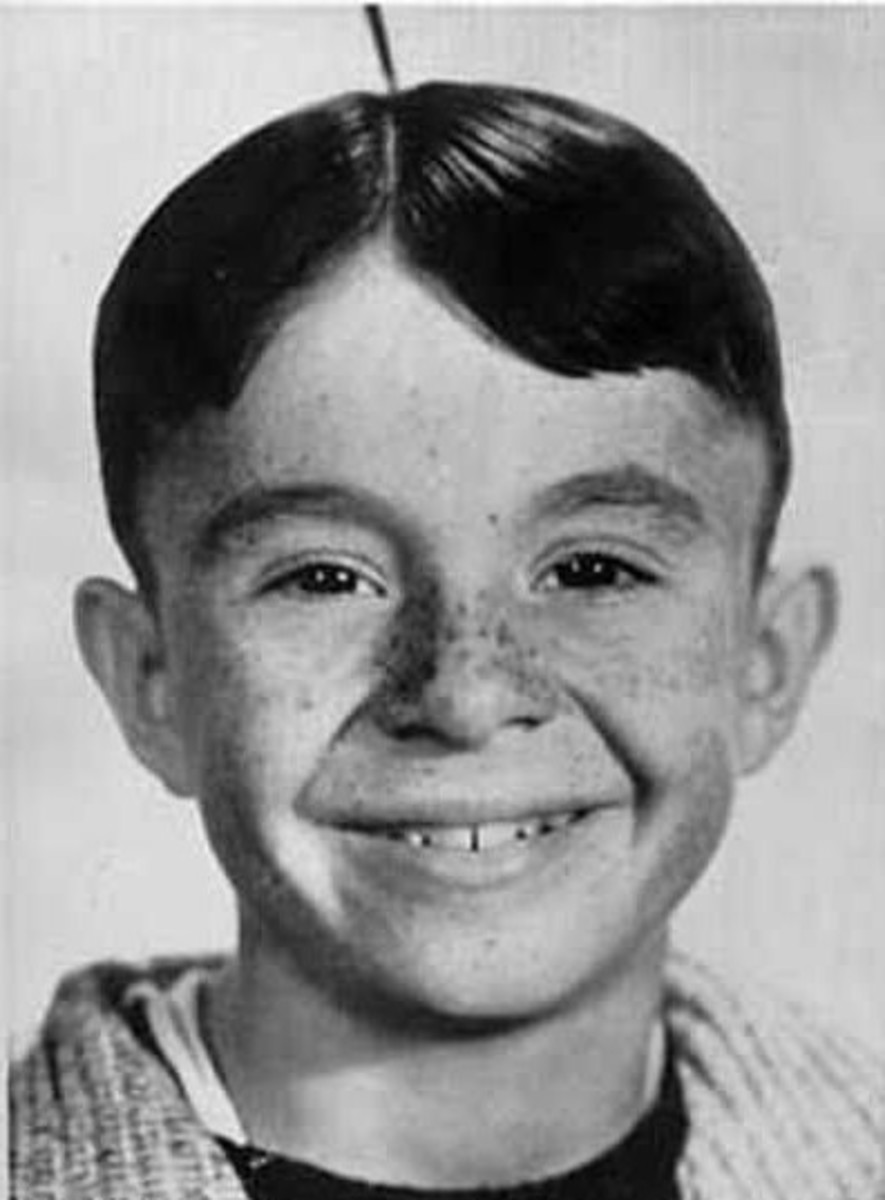Unforgettable Moments: Alfalfa and the Little Rascals' Hilarious Adventures Revealed! The world of classic cinema is filled with timeless treasures, but few have captured hearts quite like the adventures of the Little Rascals. Among these beloved characters, Alfalfa stands out as a freckle-faced icon whose antics and charm left an indelible mark on audiences worldwide.
Alfalfa's story is not just one of laughter and joy; it's also a tale of the complexities that often accompany fame at a young age. As we delve into the life of Carl Switzer, the actor who brought Alfalfa to life, we uncover both the bright moments of his career and the darker chapters that followed. This exploration reveals the highs and lows of a child star navigating the tumultuous waters of Hollywood during its golden era.
The Legacy of Our Gang: Carl Switzer's Journey Through Fame
The Our Gang series, later known as The Little Rascals, was a cornerstone of early American cinema. It featured a diverse group of children engaging in humorous escapades that resonated deeply with audiences. Among them, Carl Switzer's portrayal of Alfalfa became iconic. His distinctive cowlick and unique singing voice made him instantly recognizable. However, behind the scenes, Switzer's journey through fame was fraught with challenges. From his early days in the 1930s until his untimely death in 1959, Switzer's life encapsulated the struggles many child actors faced during this period.
Switzer's role as Alfalfa brought him immense popularity, yet it also set the stage for difficulties later in life. As the series progressed, Switzer grew alongside the other cast members, creating memories that would last a lifetime. Despite the camaraderie on screen, tensions sometimes arose off-screen, particularly between Switzer and his co-stars. Reports suggest that Switzer's behavior could be challenging, which affected his relationships with fellow actors. Nonetheless, his talent and charisma ensured his place among the most memorable characters in film history.
In the years following the Our Gang series, Switzer struggled to maintain relevance in Hollywood. Transitioning from child stardom to adult roles proved difficult, a common issue for many former child actors. Financial troubles compounded his difficulties, ultimately contributing to tragic circumstances surrounding his death. Yet, despite these hardships, Switzer's legacy endures, symbolizing both the triumphs and tribulations associated with achieving fame at a young age.
A New Era for Alfalfa: Reboots and Revivals
As time passed, the Little Rascals franchise experienced numerous reboots and revivals, introducing new generations to the charm of Alfalfa. Each iteration brought fresh interpretations of the character, allowing different actors to embody the essence of Switzer's original creation. These adaptations reflected changing times while preserving the core humor and heart that defined the series. Fans embraced these updates, appreciating how they honored the spirit of the original while incorporating contemporary elements.
Among the various actors who took on the mantle of Alfalfa, each brought their own interpretation to the role. Their performances highlighted the versatility of the character, proving that Alfalfa's appeal transcended specific portrayals. Through these reinterpretations, Alfalfa continued to captivate audiences, ensuring that his presence remained relevant across decades. This ongoing evolution demonstrated the enduring nature of the Little Rascals' impact on popular culture.
Beyond mere entertainment, these remakes served as reminders of the importance of nostalgia and tradition in storytelling. By revisiting familiar themes and characters, filmmakers connected with viewers on a personal level, evoking cherished memories and fostering new ones. Thus, Alfalfa's journey evolved beyond individual performances, becoming part of a broader narrative celebrating the power of shared experiences.
Behind the Scenes: A Closer Look at the Dynamics Within Our Gang
While the public saw only the lighthearted interactions among the Little Rascals, behind-the-scenes dynamics were occasionally more complex. Stories abound regarding interpersonal conflicts within the cast, particularly involving Carl Switzer. Some accounts describe Switzer as assertive or even domineering, qualities that occasionally strained relations with his peers. Such narratives underscore the realities of working together day after day under intense scrutiny.
Despite these challenges, the camaraderie among the cast members often shone through, especially during filming. Shared experiences created bonds that lasted long after the cameras stopped rolling. Many fondly recalled the laughter-filled days spent creating scenes that delighted millions. These memories balanced out any difficulties encountered along the way, reinforcing the notion that teamwork and mutual respect formed the foundation of their success.
Ultimately, understanding the full spectrum of interactions within the Our Gang ensemble enriches our appreciation of their collective achievements. Recognizing both the positive and negative aspects provides a more nuanced perspective on what it meant to be part of such a groundbreaking series. In doing so, we honor not only the brilliance of the performances but also the humanity behind them, acknowledging the complete picture of life inside and outside the spotlight.

